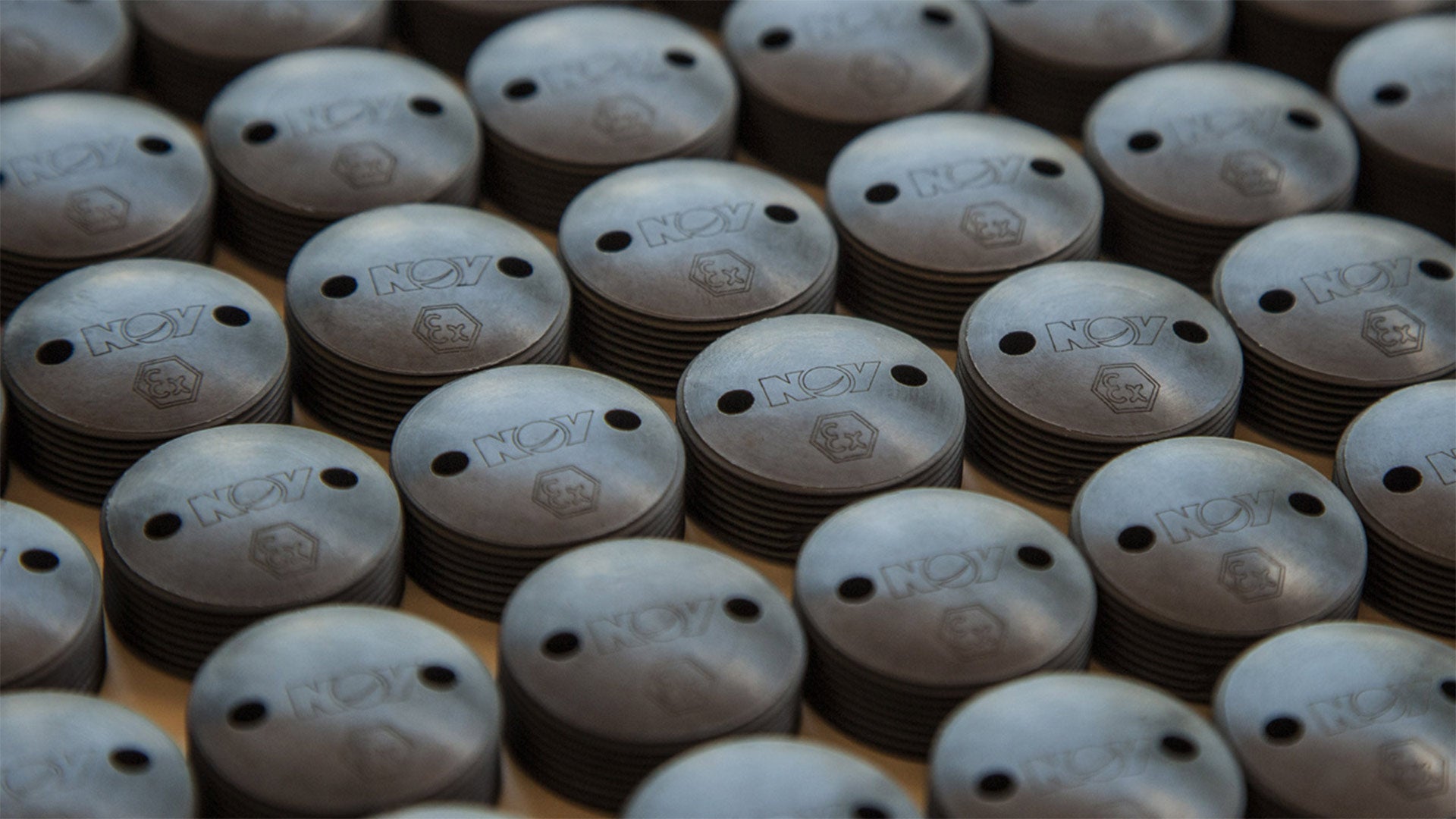TracID™ from NOV Tuboscope succeeds where other technologies have failed. As part of the industry's most comprehensive life cycle management option, this rugged RFID-based system tracks drill stem asset conditions during all phases of drilling.
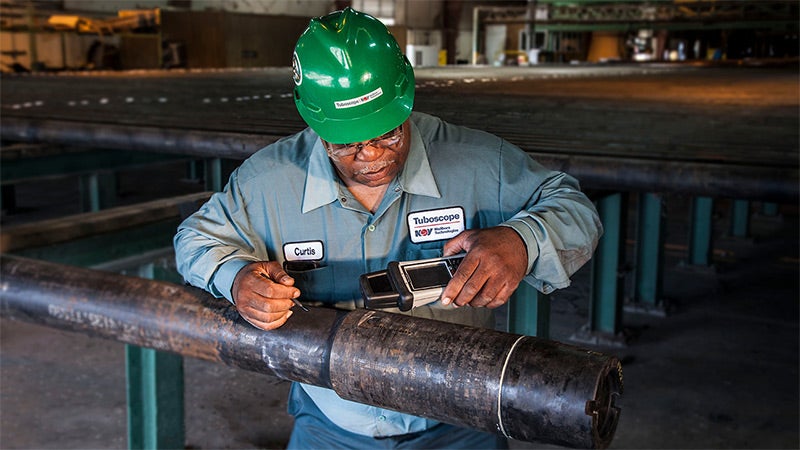
At the core of TracID are RFID-enabled tags, engineered for maximum performance in extreme environments. TracTag™ is the industry's only RFID tag field-proven to perform at 400 °F (205 °C) and 22,500 psi. More than 40,000 in-service units have logged an unprecedented track record of less than 1% failure rate over 10 years of service.
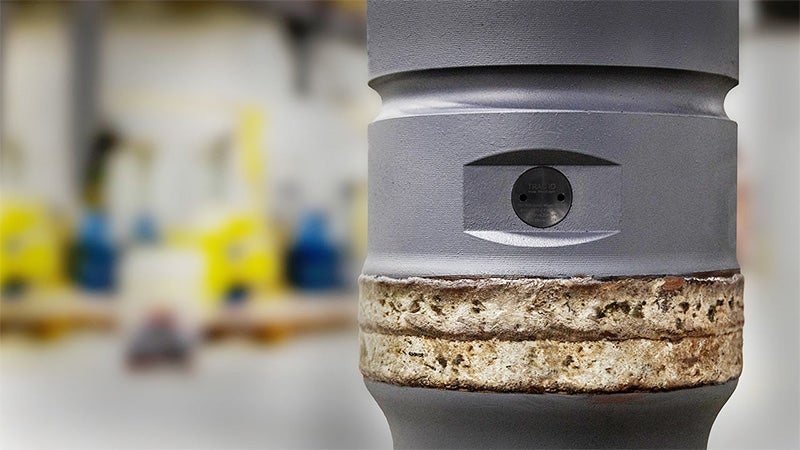
TracID helps ensure that successful life-cycle management begins long before drill pipe arrives at the rig. RFID tags are embedded on drill stem assets to capture critical history, such as mill records, repairs, and rotating hours. Collected data are uploaded into TruData™—a comprehensive reporting management system—to ensure that the correct quantity, condition, and grade of assets are delivered to the rig.
The AutoTally™ component also delivers a 100% accurate drill string tally in real time. As joints are run in hole, a rig floor reader identifies assets and their individual histories, including rotating hours, and relays that information to the driller's screen. Maintaining an accurate drill string tally reduces the nonproductive time (NPT) associated with missed depths, stuck pipe, and twist-offs.
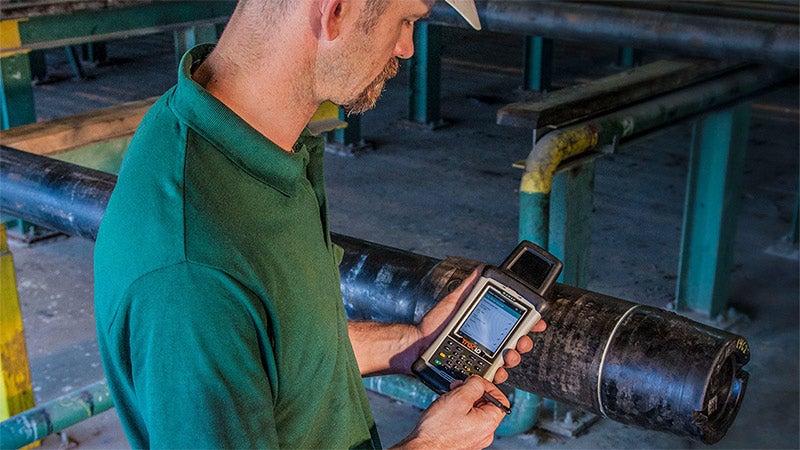
Drill string fatigue failure is the most common and costly type of drilling failure, with an estimated $100,000 per failure. Monitoring the complete history of assets can detect repetitive issues—such as thread galling, pitted seals, or disproportionate connection repairs—and take worn elements out of service before they fail.
A well-documented, current asset inventory can intercept drill pipe that should be repaired or retired. Without this information, fatigued assets can mistakenly become part of a drill string and later fail during drilling. Reliable inventory and quality control can reduce handling costs by up to 90% and lower thread repair costs by 44%.
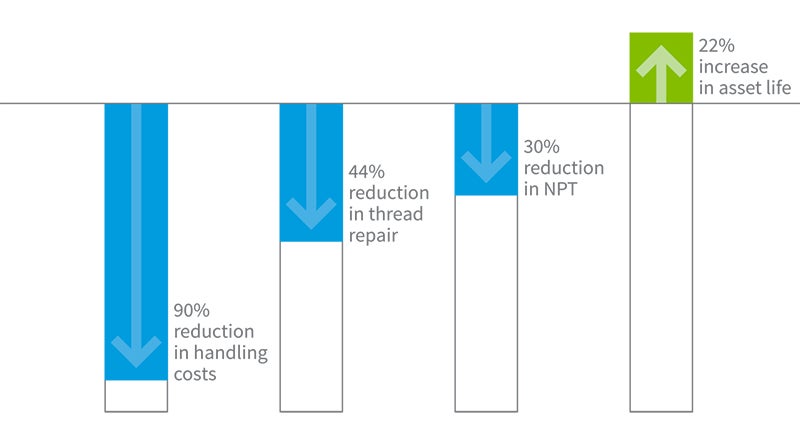
Drill stem troubleshooting can identify equipment that may be directly affecting pipe integrity. These trend lines lead to corrective actions that have been proven to extend the productive life of assets by as much as 22%, potentially reducing NPT by up to 30%.
NOV recently conducted an extensive comparison of managed offshore pipe assets against their standard, nonmanaged counterparts in the North Sea. Final analysis showed a 55% reduction in connection damages for the managed assets, saving $2.7 million over 18 months.
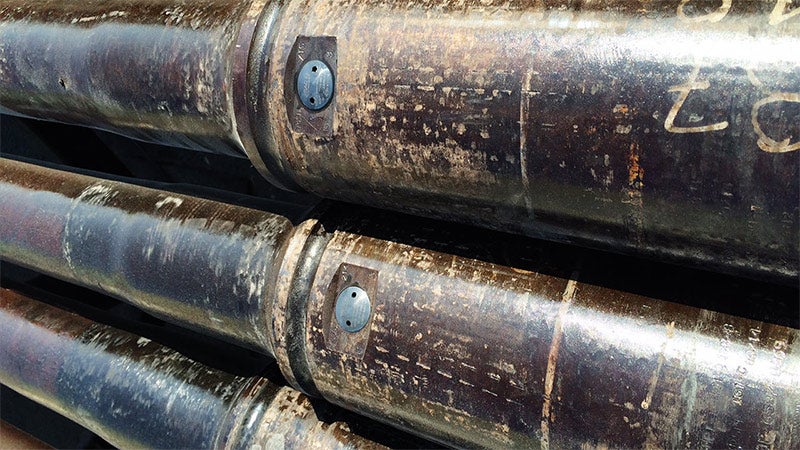
The TracID system also offers the benefits of "intelligent tagging." TracPLATES™ technology integrates RFID transponders into conventional tag plates, or they can be retrofitted into existing metal tags. TracPLATES can be attached to many types of equipment, providing superior inventory control beyond the wellbore.
TracID is currently installed throughout major oil and gas regions from Mexico to the Middle East. Efficient life-cycle management is essential for all phases of drilling—because you can't manage what you don't monitor.
